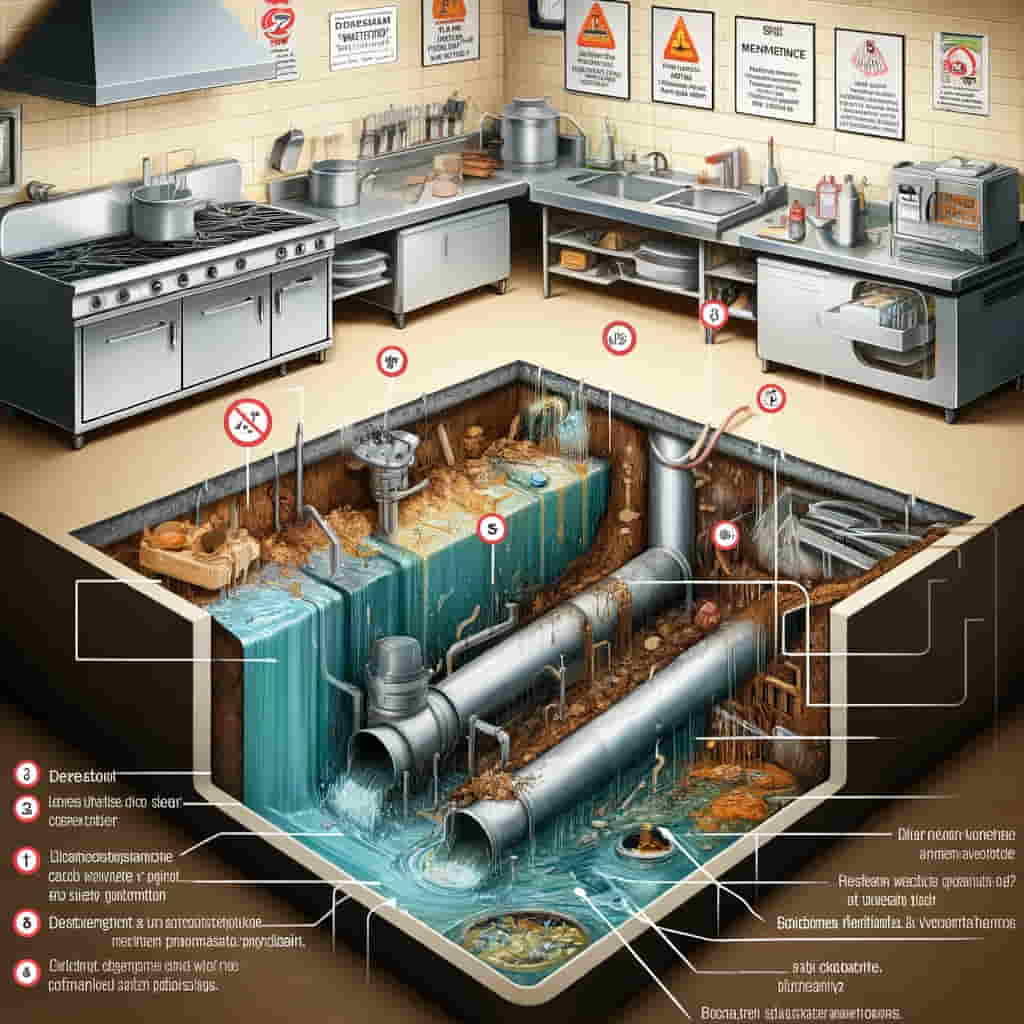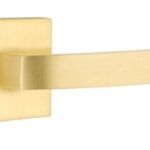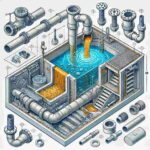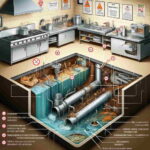Common Grease Trap Problems and How to Prevent Them

Grease traps play a crucial role in maintaining the functionality of commercial kitchens and food service establishments. However, without proper maintenance and care, grease traps can encounter various problems that can disrupt operations and lead to costly repairs. In this article, we’ll explore some of the common grease trap problems encountered by businesses and discuss preventive measures to keep them functioning efficiently. Additionally, we’ll delve into the importance of choosing a reliable grease trap cleaning service and how they can help mitigate these issues.
Understanding Grease Traps
Before delving into the problems and solutions, it’s essential to understand the role of grease traps in commercial kitchens. Grease traps, also known as grease interceptors, are plumbing devices designed to intercept most greases and solids before they enter wastewater disposal systems. They prevent fats, oils, grease (FOG), and other substances from clogging sewer lines, causing backups, and harming the environment.
Common Grease Trap Problems
Clogging and Blockages
One of the most prevalent issues with grease traps is clogging and blockages. Over time, grease, food particles, and other debris can accumulate inside the trap, reducing its efficiency and causing backups in sinks and drains. This can lead to foul odors, slow drainage, and even sewage overflows, posing health hazards and regulatory compliance issues.
Foul Odors
Accumulated grease and food waste in grease traps can emit foul odors, creating an unpleasant environment in commercial kitchens and food service establishments. These odors not only affect the comfort of staff and customers but can also indicate underlying issues with the grease trap that require immediate attention.
Reduced Efficiency
Grease traps that are not properly maintained can experience reduced efficiency in trapping fats, oils, and grease. This can result in more FOG entering the wastewater disposal system, leading to clogs, backups, and potential fines from regulatory authorities.
Corrosion and Structural Damage
Over time, grease traps can corrode and sustain structural damage due to prolonged exposure to acidic substances, high temperatures, and mechanical stress. Corrosion weakens the integrity of the trap, increasing the risk of leaks, ruptures, and environmental contamination.
Preventive Measures
Regular Maintenance
The key to preventing grease trap problems is regular maintenance. Establish a routine maintenance schedule and ensure that grease traps are cleaned and serviced at least every 90 days, or more frequently if required by local regulations. Regular maintenance helps prevent clogs, odors, and structural damage, prolonging the lifespan of the grease trap.
Proper Disposal Practices
Train kitchen staff to dispose of FOG properly by scraping plates, pots, and utensils before washing them. Implement best practices for grease disposal, such as using strainers and grease collection containers to capture FOG before it enters the drainage system. Educate employees about the importance of maintaining grease traps and complying with regulations to prevent environmental pollution.
Use of Biological Additives
Consider using biological additives in conjunction with regular cleaning to enhance the efficiency of grease traps. Biological additives contain naturally occurring bacteria and enzymes that break down organic matter, reducing odors, preventing clogs, and improving overall performance. Consult with a professional grease trap cleaning service to determine the appropriate additives for your specific needs.
Inspections and Repairs
Conduct regular inspections of grease traps to identify any signs of damage, corrosion, or wear and tear. Address any issues promptly to prevent them from escalating into costly repairs or replacements. Work with certified professionals who specialize in grease trap maintenance and repair to ensure that the job is done safely and effectively.
Choosing a Reliable Grease Trap Cleaning Service
When selecting a grease trap cleaning service, it’s essential to consider several factors to ensure that you’re partnering with a reputable and reliable provider. Here are some tips for choosing the right grease trap cleaning service for your business:
Experience and Expertise
Look for a grease trap cleaning service with years of experience and a proven track record of delivering high-quality services. Choose a company that employs trained technicians who are knowledgeable about grease trap maintenance, cleaning techniques, and regulatory requirements.
Certifications and Compliance
Verify that the grease trap cleaning service is certified and licensed to operate in your area. Ensure that they comply with local regulations and environmental guidelines for grease trap cleaning and disposal. Ask for documentation of certifications and regulatory compliance to demonstrate their commitment to quality and accountability.
Customer Reviews and References
Read online reviews and testimonials from previous customers to gauge the reputation and reliability of the grease trap cleaning service. Ask for references from other businesses in your industry and inquire about their experiences with the service provider. Choose a company with positive reviews and satisfied customers to ensure a positive experience.
Flexible Service Options
Select a grease trap cleaning service that offers flexible service options tailored to your business’s needs and schedule. Whether you require weekly, monthly, or on-demand cleaning services, choose a provider that can accommodate your requirements and provide timely and efficient service when needed.
Transparent Pricing and Contracts
Request detailed pricing information and contracts from potential grease trap cleaning service providers. Ensure that there are no hidden fees or unexpected charges and that the terms of the agreement are clearly outlined. Choose a company that offers transparent pricing and flexible contract terms to avoid any misunderstandings or disputes.
In conclusion, grease trap problems can disrupt the operations of commercial kitchens and food service establishments, leading to costly repairs, regulatory fines, and environmental pollution. By implementing preventive measures and partnering with a reliable grease trap cleaning service, businesses can mitigate these issues and ensure the efficient operation of their grease traps. Remember to prioritize regular maintenance, proper disposal practices, and choosing a reputable service provider to keep your grease traps functioning smoothly and compliant with regulations.







